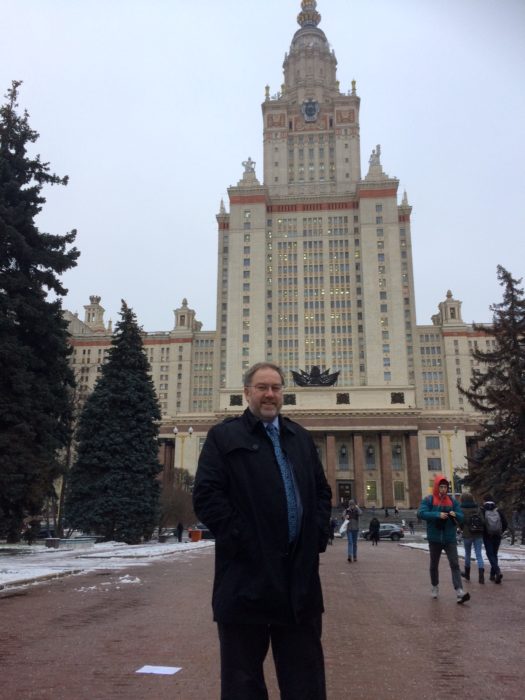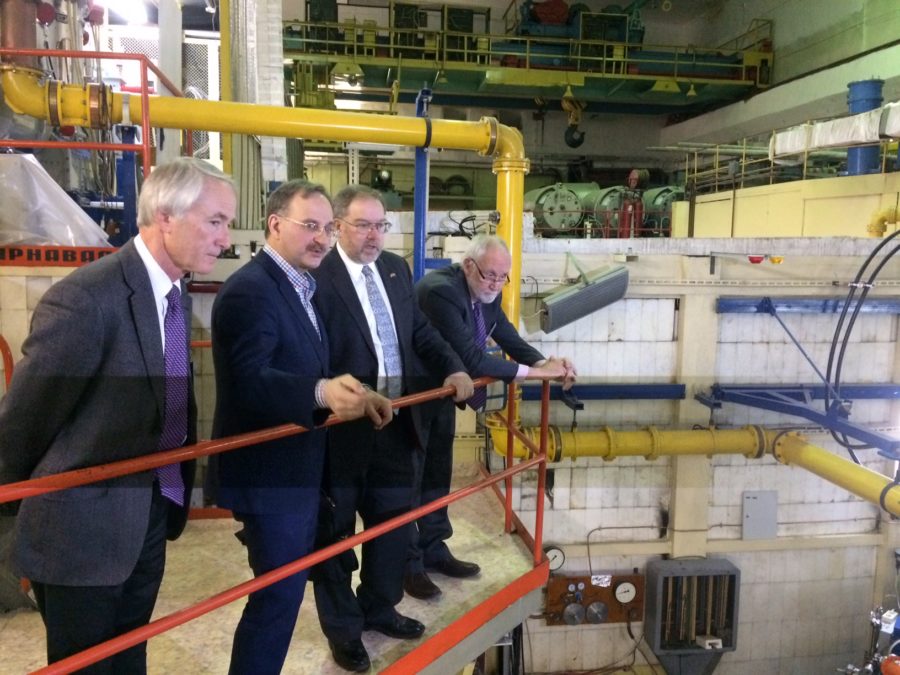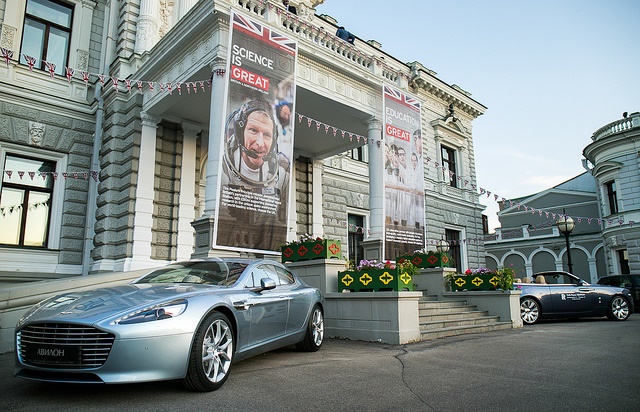26th January 2018 London, UK
UK – Russia Year of Science and Education: A year older, a year wiser
Last month Foreign Secretary Boris Johnson visited Moscow for talks with Russian Foreign Minister Sergey Lavrov. Whilst media reporting of the visit focused on our bilateral political relationship and what we are doing to solve together the world’s most pressing global challenges, science and education were also among the topics discussed during the visit. Both sides welcomed the success of the 2017 UK-Russia Year of Science and Education and highlighted the role cooperation in these areas can play in developing our bilateral relationship.
As the saying goes, “время летит” (time flies) as it was one year ago tomorrow that I was in Moscow to launch the Year of Science and Education. The past twelve months have proved fruitful for strengthening our science links and stepping up our cooperation in a host of scientific areas: from tackling antimicrobial resistance to deepening links between Arctic researchers.

After the launch, I returned to Moscow in May to start a conversation on science diplomacy and its increasingly important role in today’s fast-paced and highly technological world. It is a topic that is now firmly planted into our respective science agendas and one we will continue to discuss in future years. Through regional science missions, I was able to venture further east and discover more parts of Russia, notably the research capacities in Novosibirsk and Kazan. The visit to Novosibirsk reminded me that when I was an early career scientist I would read about this near mystical place called Akademgorodok (Academic City) in a far-off part of the Soviet Union, which was producing world-class research. It was great to finally visit the city and see for myself that their tradition of scientific excellence continues.

With the support of the Royal Society, Russian Academy of Sciences, British Council and numerous universities and institutes in the UK and Russia, the Year covered a vast range of topics. For example, on the physics front there was a workshop on black holes & gravitational waves and a UK delegation participated in Russia’s largest conference on the multidimensional theories of gravity and cosmology. A successful catalysis workshop brought together leading UK and Russian experts to talk about a diverse range of topics; from using gold-containing nano-particles in catalysis to converting beer into biofuel. There has been a steady increase in UK-Russia engagement to combat antimicrobial resistance (AMR), and Chief Medical Officer, Dame Sally Davies visited Moscow to continue the discussion.
In addition to workshops and seminars, the Year also generated a line-up of thought-provoking and inspiring talks by prominent scientists and entrepreneurs. The CEO of the UK’s synchrotron, Diamond Light Source, spoke at the Moscow Science Festival on how mega-science facilities can aid historical and cultural heritage preservation. Sir Martin Sweeting, the pioneer of small-satellites, provided in-sight into future opportunities for space technology development, such as 3D printing satellites in space, and the founder of the start-up MacRebur sparked much interest with his talk concerning the onslaught of plastic waste and how it can be used to construct better quality and longer-lasting roads.

Really, a multitude of excellent events and activities delivered in the space of twelve months! Our teams in the Embassy and British Council have ‘done good’.
Importantly, throughout the Year we invested in the sustainability of our science cooperation. We have fostered links between UK and Russian early-career researchers, supported workshops for young UK and Russian Arctic scientists (under the umbrella of the Association of Polar Early Career Scientists), and ensured young researchers were involved in the events. All of this will help identify new synergies, strengthen our science networks and promote long-term partnerships!
While the Year may be drawing to its official close, it is most certainly not the end of our uplift in collaboration. As 2018 begins to unroll, the calendar of follow-up events is already filling up. Russia’s leading medical university is holding a summer school to bring together future doctors and surgeons. In November the British Council will take to Russia a delegation of university Vice-Chancellors to meet their local counterparts and showcase the opportunities for deeper university-to-university cooperation. And there will be much more besides.
In a blog twelve months ago I asked whether the UK-Russia Year of Science and Education was the beginning of a beautiful relationship. As I said at the time, beauty is in the eye of the beholder, but so long as your definition of beauty involves stronger links, more joint research and a better understanding of our common interests, the Year has indeed been fine-looking.